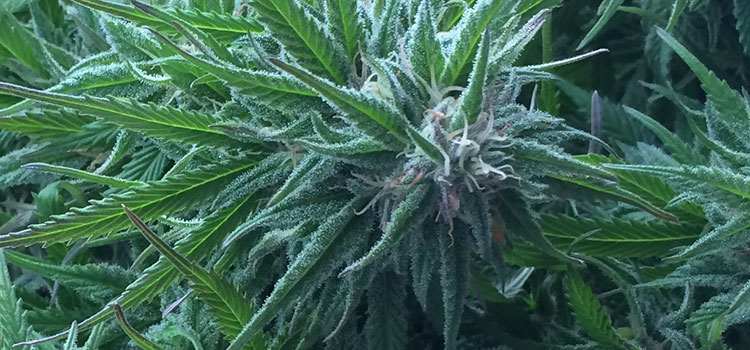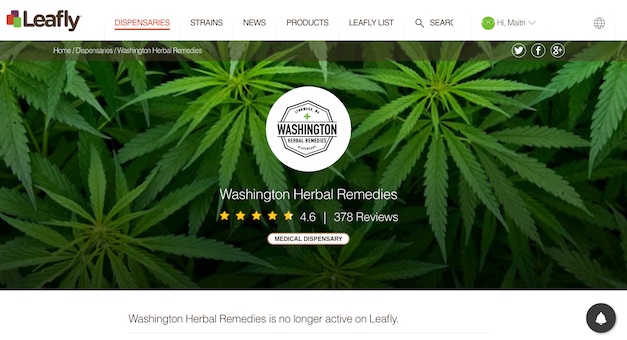The Mad Hatter is angry and sad.
No longer will Sheila Scott cook and sell her medical-marijuana cookies, bars and other high-dose treats, reported The News Tribune (
http://bit.ly/29rgvSs).
The proposed rule that became law July 1 allows certain high-dose delivery systems (suppositories, tinctures, etc.), but honors existing state rules that prohibit the sale of cannabis-infused edibles containing a total of more than 100 milligrams of THC, or tetrahydrocannabinol.
Until the ban, Scott said she manufactured and sold products containing up to 1,500 milligrams.
Until the ban, she said, she served 281 patients — including 165 with a diagnosis of Stage 4 cancer. Her products were sold in select Washington dispensaries.
With the ban in place, she said, "I can't stop crying about it. I don't think it's going to help anybody."
For her, it's about compassion.
For the state, it's about safety.
THE ROAD TO MEDIBLES
Scott, 48, is herself a patient.
Heart surgery led to leg pain a handful of years ago, and marijuana, she said recently at her home near Rochester, "would take the pain away."
"It made it so I could eat," she said.
A girlfriend gave her perspective.
"She said, 'If I could save myself I could probably save others,'" Scott said.
And that became her mission.
She remains a patient herself, and it's not unusual for her to begin the day with a self-prescribed 500-milligram candy bar. Add "three or four to 20 joints a day, depending on the pain."
"Obviously it takes more milligrams to help me because I've built up a tolerance," she said.
She recalls stories of her former patients, particularly "a patient named Chris who left a note for me, a beautiful letter about how he didn't know me, and how he couldn't leave his house because of Tourette's. Now I think that patient is not going to be able to leave his house anymore."
Patients, she believes, "are not going to be able to function. They'll go back underground. You start making people be on a registry — how is that fair? People will suffer or they will pay recreational prices."
Patients who join the state registry will be able to buy more marijuana and higher-dose edibles — although not as high as those previously offered by Mad Hatter and other mega-dose products — and they will not be required to pay sales tax.
They will be able to buy and use high-dose products in forms including capsules, tinctures, transdermal patches and suppositories.
THE STATE
"I understand that patients have for many years now had free run in a completely unregulated market, and change is hard," said Kristi Weeks, policy counsel for the State Department of Health.
Weeks helped design the new law.
"There was no scientific research available. We just listened to the patients, who said they needed more than 10 (milligrams) per serving, and 50 seemed reasonable," she said, in reference to the medical edible limits.
Of the high-dose products, Weeks said, "We understand that these things have been available. We do not think as a public policy they should continue to be available. If patients need medicine, it should be in the form of medicine, not cookies and candies and things that are especially attractive to children."
Another issue, she said, concerns household pets. "It's not only children who are getting into these products," she said.
"I only have anecdotes," she said. "I do hear from E.R. departments (that) are seeing an increase in children and the elderly who are not familiar with high doses. People who may have smoked it in the '60s — now they're trying it again."
She said high dosages are available beyond the four varieties allowed in the law.
"If you are a patient you can grow your own marijuana, and make your own butter, or your own oil, and use that to infuse your cookies. We're not talking about what patients can have or use — we're talking about what they can buy. If somebody really feels they need to have a 500-milligram cookie, there is an outlet for that," Weeks said.
And she repudiates the threat that patients will return to the black market.
"Every decision that's been made by the state Legislature, Department of Health or the Washington State Liquor and Cannabis Board, every decision has been met with that argument," she said. "If we have a patient registry, black market; if (there are) taxes, black market; serving size, it will lead to the black market.
"We have to make regulations that are in the best interests of the public as a whole, and we know that there will always be people who do not abide by the law. If we set the edible serving at 100, or 500, there would still be some people who say, 'I need more.'"
CONTROVERSY ANTICIPATED
At a recent marijuana industry gathering, Sheila Scott won the 2016 Dope magazine "Best Edible Sweet Medical" Dope Cup trophy for her peanut butter bars.
No longer will she compete.
The Mad Hatter operation has closed. Scott will move on, she said, and assist a licensed producer manufacturing legal, low-dose edibles.
The Mad Hatter is defunct.
And Scott remains angry and sad.
"They need to reinstate medical marijuana," she said. "It has nothing to do with recreational. They're not looking out for people who have cancer, who have pain. If it wasn't for medical marijuana patients, you wouldn't have recreational. We were against (Initiative) 502.
"We thought something like this might happen," she said.
She asks, "What do you tell patients? I don't know what to tell them. Put it back the way it was. All of us patients were just fine. We were taking care of one another."
WASHINGTON STATE
Read more here: http://www.theolympian.com/news/state/washington/article88643497.html#storylink=cpy






